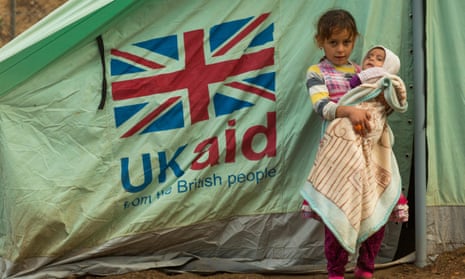Described by some as the UK’s Arab spring, the vote for Brexit has been celebrated by its supporters as the anti-establishment, anti-status quo act that will reinvigorate the fortunes of the nation. Yet, like the Arab spring, we now know there is no plan for Brexit. Disarray and disorganisation has followed and, while Britons may not be subjected to the misery the Arab world has suffered, that does not mean all will be well.
The decision to leave the EU could not have come at a worse time: the international community is undergoing major upheaval and faces what Sir John Sawers, a former head of MI6, has described as “cold war-era threat levels.” Popular perception has pushed foreign policy to the margins – largely because of costly wars in Iraq and Afghanistan – but whether it is confronting terrorism, economic uncertainty or the belligerence of Russia and China, it would be a mistake to assume global events have no consequence in the UK.
Globalisation has dramatically reduced the notion of remote threats. What happens in a village in Afghanistan or in Isis-occupied territory threatens our interests at home. Britain now risks being left weakened, but just as exposed to international crises as it was before.
These crises are most acute in the Middle East. The UK has significant soft power there and strong bilateral ties that can be traced to its colonial history. Indeed, the majority of those that attempt to reach the UK are from conflict zones such as Syria, Iraq and Afghanistan, whose citizens generally prefer the UK as their final destination because of the English language, its global status and its tolerance for different faiths and cultures.
But the UK now faces a Middle East and a global order in which fragile and failed states are on the increase, as are militias and terrorists with access to significant resources and large swaths of territory. These are the causes, and multipliers, of problems such as the refugee crisis or jihadi terrorism and they are not going anywhere anytime soon, with or without Brexit.
While at times we could turn one eye away from conflict zones and rely on the resources of the European collective to do the job for us, we could now find ourselves insufficiently equipped at a time of economic uncertainty. The country is shifting resources away from its defence capabilities and is diverging from interventionist and unilateral policies abroad. The Conservative government has often highlighted the need to deal with the root causes of issues such as the refugee crisis. But any calls for greater EU aid for refugees or the relaxation of EU trade rules to spur economic growth and alleviate the plight of refugees may now fall on deaf ears.
In practical terms, leaving the EU means Britain will lack the ability to encourage European partners to invest energy and resources into places such as Iraq and Libya, where jihadi groups continue to thrive and where sectarian conflict has taken the country to the brink. It also means being unable to exert pressure and push for political reform in places that suffer from weak institutions or violent governments. Economic uncertainty in the UK will also mean trade is prioritised with countries whose political environments exacerbate the threats we face. This will have the inadvertent effect of placing the UK on the faultline of the worsening sectarian war between the regional powers Saudi Arabia and Iran.
The EU has been far from perfect. And the UK has not maximised its opportunities for multilateral cooperation on the many challenges and crises facing the international community. Despite these challenges, however, British influence on the global stage has been multiplied by the EU, as was clear with the recent Iranian nuclear deal. And Syria shows that where we do not step in, others such as Russia will, with disastrous consequences for peace and stability.
There could be more optimism for the future if the UK invested in its foreign policy and actually had a strategy with direction and purpose. There is little to suggest that Theresa May’s government will address foreign policy shortcomings as it grapples with political and economic problems at home. Brexit will not only hurt our capacity to address international challenges but we also lack a proactive foreign policy to take its place.
It could be the despots, the Russians and rising powers such as China who will have the last laugh: isolation and division enables them to enhance their own influence and presence in volatile regions such as the Middle East, while also enabling them to challenge the international order.
